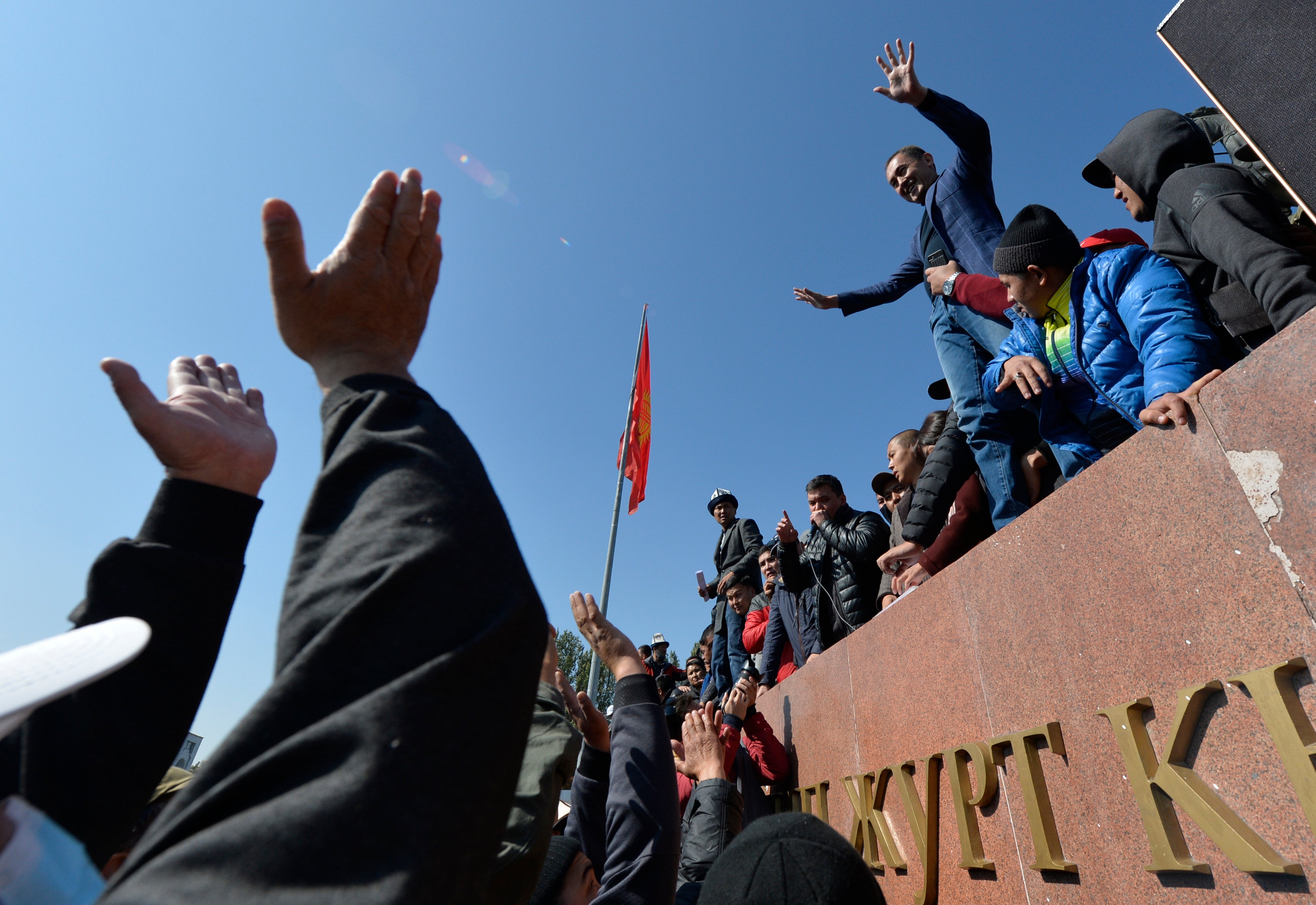Kyrgyzstan leader holds talks to try to end political crisis
The president of Kyrgyzstan has held his first talks with the new speaker of parliament to try to end a political crisis that unfolded in the Central Asian country after mass protests over a disputed parliamentary election

Your support helps us to tell the story
From reproductive rights to climate change to Big Tech, The Independent is on the ground when the story is developing. Whether it's investigating the financials of Elon Musk's pro-Trump PAC or producing our latest documentary, 'The A Word', which shines a light on the American women fighting for reproductive rights, we know how important it is to parse out the facts from the messaging.
At such a critical moment in US history, we need reporters on the ground. Your donation allows us to keep sending journalists to speak to both sides of the story.
The Independent is trusted by Americans across the entire political spectrum. And unlike many other quality news outlets, we choose not to lock Americans out of our reporting and analysis with paywalls. We believe quality journalism should be available to everyone, paid for by those who can afford it.
Your support makes all the difference.The president of Kyrgyzstan held his first talks Thursday with the newly appointed speaker of parliament to try to end a political crisis that unfolded in the Central Asian country after mass protests over a disputed parliamentary election.
President Sooronbai Jeenbekov spoke by phone with Myktybek Abdyldayev, who was named to the leadership post by lawmakers about getting the country back on a “lawful track," and suggested they meet for proper talks, a presidential spokeswoman said.
The two also discussed the president’s impeachment, which opposition lawmakers and protesters have been demanding this week, said the spokeswoman, Tolgonai Stamaliyeva, according to the Interfax news agency.
At the same time, "the question of the president's voluntary resignation” is not on the agenda, she told Interfax.
Kyrgyzstan, a country of 6.5 million located on the border with China, plunged into chaos this week after mass protests erupted Monday, the day after a parliamentary election appeared to show parties connected to the ruling elite winning. Protesters stormed and seized government buildings, looting some offices, and the Central Election Commission responded by nullifying Sunday’s balloting.
Members of some opposition parties announced plans to oust Jeenbekov and form a new government, but the efforts stalled as various political forces fought for power and argued over a new prime minister.
The parliament called for an emergency session on Tuesday night, during which lawmakers announced the resignation of Prime Minister Kubatbek Boronov and nominated former lawmaker Sadyr Zhaparov to replace him. They also elected Abdyldayev parliament speaker.
Local media said the lawmakers didn’t have a quorum and used proxy votes by other parliament members to approve the appointments. It wasn’t immediately clear if any of the changes were legal under the constitution in Kyrgyzstan, where popular uprisings since 2005 have chased two presidents from power.
Several opposition groups rejected Zhaparov’s candidacy and suggested their own nominee.
Zhaparov called himself “a legitimate prime minister” appointed “by the parliament’s majority” at a news conference Wednesday, and said he was “already working, coordinating the situation.”
At the same time, the Russian state news agency RIA Novosti cited the Kyrgyz government press service as saying Boronov will remain acting prime minister until Jeenbekov accepts his resignation.
Jeenbekov hasn't received Boronov's resignation letter yet, the president's spokeswoman told Interfax on Thursday.
At the same time, Jeenbekov's phone conversation with Abdyldayev indicated he accepted his nomination by lawmakers.
Several other top government posts have been claimed by candidates from opposition parties. Omurbek Suvanaliyev, the former deputy chief of Kyrgyzstan's Security Council, said he had returned to his old post and would coordinate the security forces.
The website of Kyrgyzstan's State Committee for National Security on Wednesday reported that Suvanaliyev held talks with the head of Russia's Federal Security Service, Alexander Bortnikov.
Kyrgyzstan, one of the poorest countries to emerge from the former Soviet Union, maintains close ties with Russia and hosts a Russian air base. Kremlin spokesman Dmitry Peskov mentioned the talks Thursday and expressed hope that Suvanaliyev's efforts will “help stabilize the situation” in Kyrgyzstan, which “resembles a mess and chaos.”